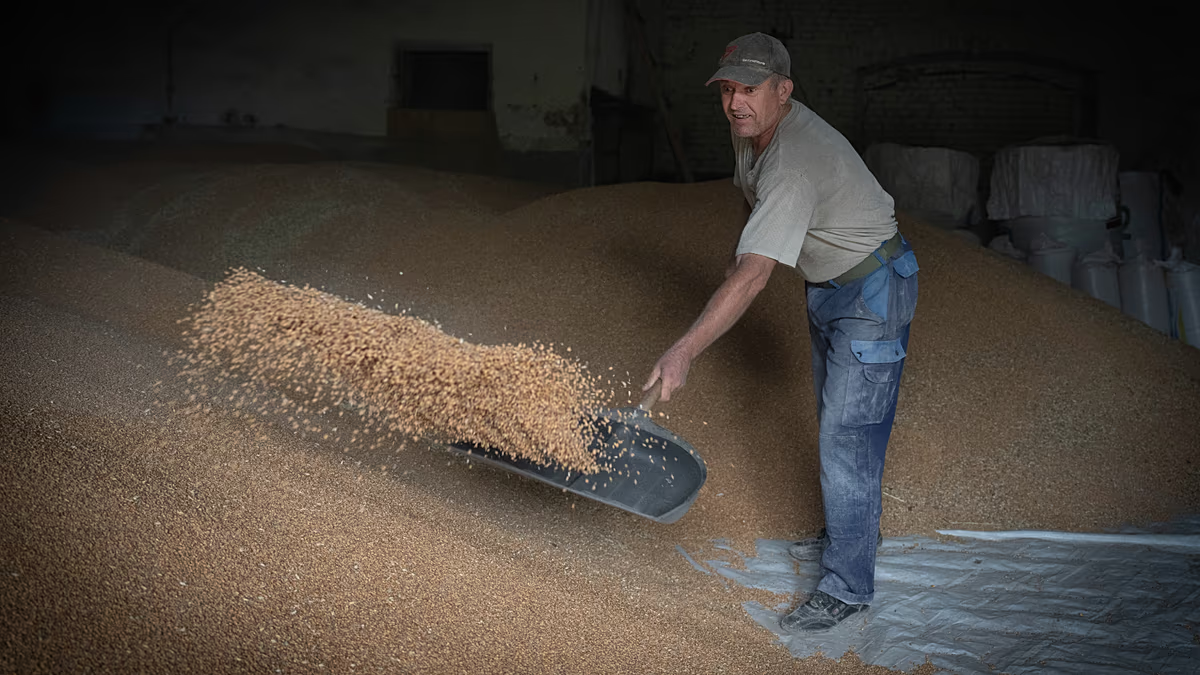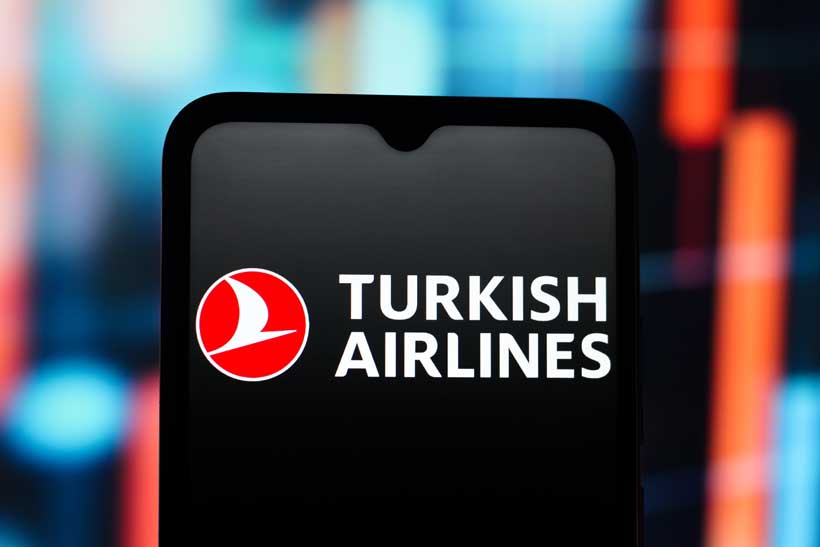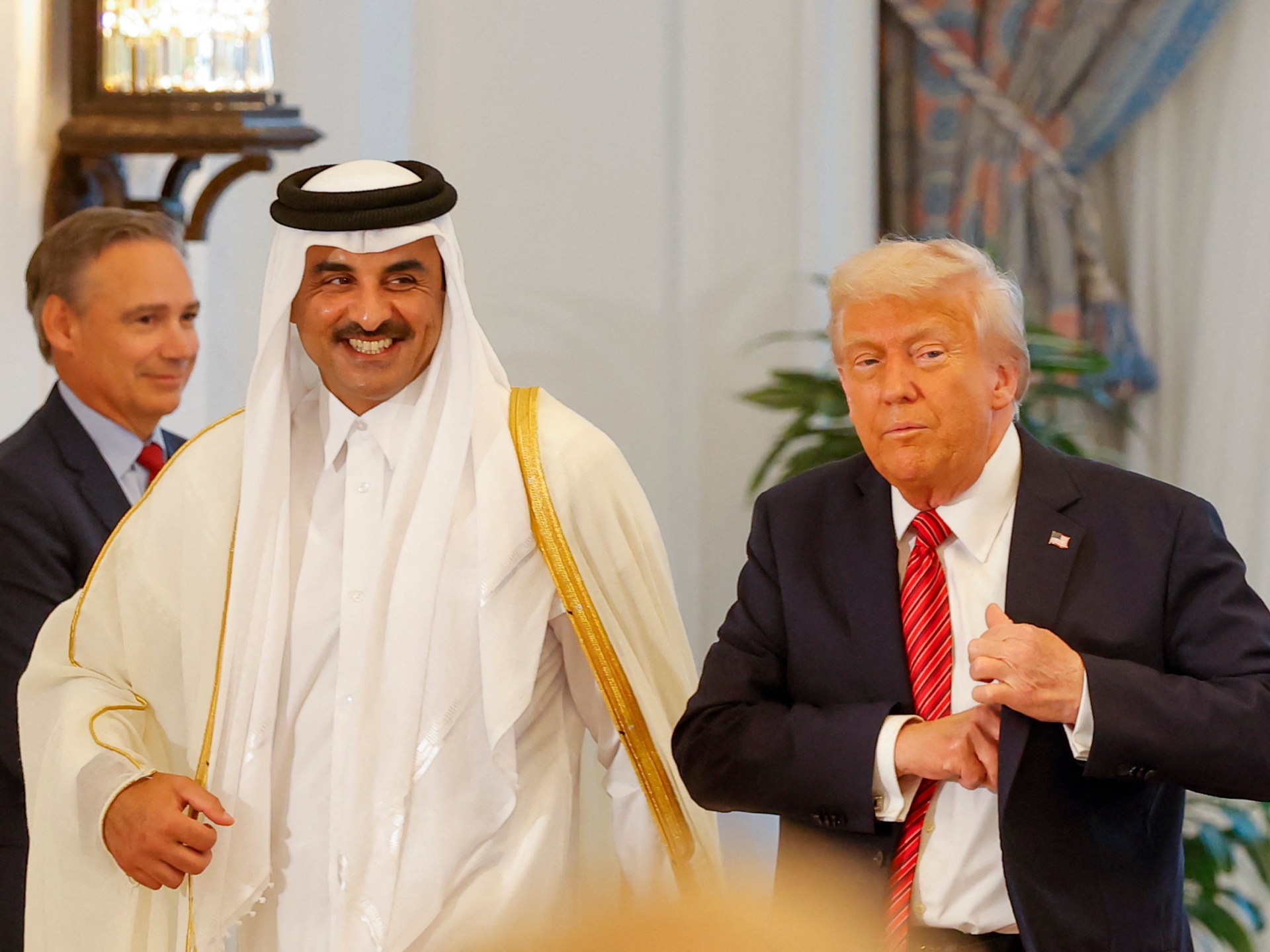EU inks agriculture deal with Ukraine even as political divisions remain over vast exports
An agreement designed to further liberalise trade between the EU and Kyiv came into force on Wednesday.
It will replace the deal in place since 2016, by expanding tariff-free access for Ukrainian goods and services.
However the new agreement has become a political headache for the European Commission, as Hungary, Poland and Slovakia are not lifting bans on Ukrainian agricultural imports.
“We are engaging with all the parties to try to find solutions,” Commission deputy chief spokesperson Ariana Podesta said on Tuesday.
“We believe (the agreement) is a stable, fair framework, that can be reliable both for the EU and for Ukraine, to ensure a gradual integration in our single market, while providing stable trade flows,” Podesta added.
The new deal includes safeguards limiting imports of certain sensitive products such as grains and oil. Nevertheless, Hungary, Poland and Slovakia have refused to lift their national bans on Ukrainian agri-food imports.
These restrictions were first introduced after the EU opened its market completely to Ukrainian agricultural products following Russia’s invasion of Ukraine, as the Black Sea — a vital export corridor for Kyiv — was effectively blocked.
The resulting land corridors into the EU, designed to keep Ukrainian exports flowing, sparked anger among farmers in neighbouring countries who accused Brussels of allowing unfair competition.
Politically charged
The issue became politically charged, weighing on Poland’s 2023 general election and fuelling tensions in Slovakia and Hungary.
“After the war, imports of agriculture to the EU doubled. We have 117% increase compared to the pre-war levels,” Tinatin Akhvlediani, an expert at the Centre for European Policy Studies (CEPS), told Euronews.
However, Akhvlediani added that “it has been unnecessarily politicised because these Ukrainian goods were easily absorbed by the neighbouring countries.”
Ukraine’s main agricultural exports — grain, sugar and oil — are largely unprocessed goods.
“This is complementary with the trading of the EU because it mostly exports processed agricultural goods,” Akhvlediani explained.
“Ukrainian goods in fact are highly demanded in the EU market. That explains why Ukraine is the third largest import partner for the European Union after Brazil and the UK.”
The new trade deal includes a “safeguard clause” allowing either side to impose protective measures if surging imports damage domestic industries.
Yet this has not eased concerns in neighbouring countries.
“Although Brussels wants to give farmers’ money to Ukraine, we are protecting the resources, the livelihoods of Hungarian producers and our market,” Hungarian Agriculture Minister István Nagy wrote on Facebook on Monday, as he and his EU peers met in Brussels.
The ongoing dispute illustrates the broader obstacles facing Ukraine’s path to EU membership.
Within the bloc, some are concerned about how Ukraine’s enormous agricultural capacity — 42 million hectares of cultivated land, the largest in Europe — would affect the Common Agricultural Policy (CAP), which distributes funds based on farm size.
Even if CAP payments were reformed to focus on production rather than land area, “Ukraine remains quite competitive,” Akhvlediani said.
“The solution could be that the EU puts transition measures in the accession treaty which would limit the benefit from certain policies or not benefit from them at all. This could be the case for the CAP. It’s completely up to the EU,” she concluded.
Romanian President Nicușor Dan, whose country also borders Ukraine, is one of the rare EU leaders to have spoken openly about the issue, saying the discussion about agriculture is “pending”.
According to the Romanian president, the risks of imbalances for the EU are “significant”, especially since Ukraine “does not currently meet the standards that we impose on the agricultural sector in the EU.”
“The discussions taking place are that, in terms of agriculture, Ukraine should have a special status so that it can continue to make significant exports to non-European countries while, in all other clusters, it should be treated as an equal,” Dan said.


